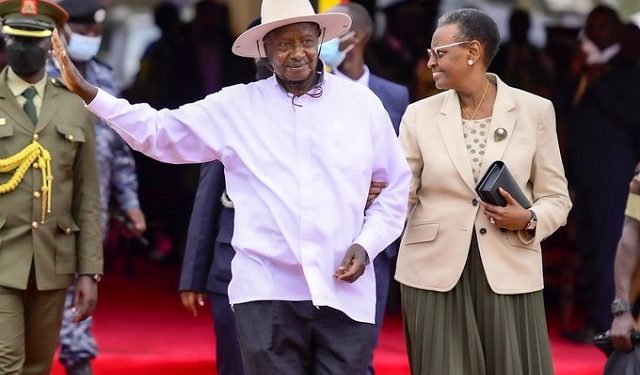By CHANGE OF GUARDS
“We can’t do what we want to do because the biggest problem we have is corruption. Recently, there was an audit by the Auditor General which showed that there were very many ghost workers being paid…….I saw that the committee of parliament is going to I don’t know what. No. Once you are a thief or a criminal, CID will move in and and deal with them. If the Auditor General has shown that then the next stage should be CID (Police) not political because politics will have been bypassed by that time.”
Gen. Museveni – January 26, 2024.
To ensure accountability and good governance, the Constitution of Uganda created institutions of government that are responsible for carrying out the oversight role. This role is majorly a mandate of parliament with the help of institutions like the offices of the Auditor General (AG) and the Inspector General of Government (IGG). These two institutions are answerable to parliament. Besides, parliament also has sectoral committees and a mandate to create ad-hoc committees both of which have quasi-judicial powers. The parliamentary plenary also has the mandate to censure presidential appointees including cabinet ministers. As a safeguard against potential compromise and cover-up by government, the leadership of such accountability committees is vested in the opposition in parliament.
Though amidst strong protests from Museveni, in the past parliament was able to successfully censure some cabinet ministers over corruption and abuse of office. With formidable pressure from parliament, Museveni would also comply with the constitutional requirement for him to drop the affected individuals from cabinet. However, he would later re-appoint the same people to cabinet positions.
With his autocracy approaching its climax, he no longer pretends. He has lost respect for parliament and its Institutions with regard to the fight against corruption and abuse of office.
He has gone ahead to irregularly put in place parallel institutions under his State House against the said constitutional ones. The so-called State House Anti-coruption Unit, the Investor Protection Unit, the land Protection unit, the Financial Intelligence Authority, and a couple of other outfits that are all designed to provide a cover-up for the corrupt. Corruption is his regime lifeline and a tool for political patronage as it ensures loyalty and attracts fence sitters. Further, corruption is a regime policy of accumulating wealth by a small clique that has the privilege of controlling the economy.
Of recent, parliament and in particular the opposition led accountability committees have probed a few incidents of corruption. Cabinet Ministers and heads of government agencies have been found culpable. Where such cabinet Ministers have consequently been censured, Museveni has adamantly not complied with the set down constitutional provisions; thus causing a stalemate. By connivance, the rubber-stamp regime dominated parliament and its figurehead office of the Speaker have not made use of the constitutional provisions. He has no free hand in directly controlling and influencing the outcomes of such probes. On the contrary, with his military manning the criminal investigation arm of the police, he is assured of covering up for the corrupt.
Therefore, it’s against this background that Museveni is demonizing the role of parliament and wants it off the fight against corruption.
INFORMATION IS POWER AND THE PROBLEM OF UGANDA IS MUSEVENISM







Discussion about this post